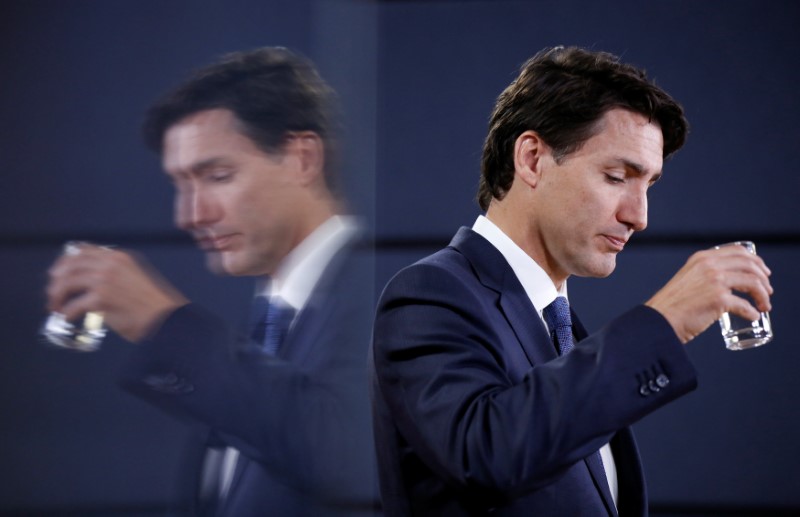(Bloomberg) -- Justin Trudeau gave a vote of confidence to his two most effective ministers to oversee the thorniest issues facing his government as he starts a second term in power after last month’s bruising election.
The Canadian prime minister announced a new cabinet Wednesday that keeps Bill Morneau at the helm of the finance department and moves Chrystia Freeland from foreign affairs to deputy prime minister, which will give her wide berth to manage key files such as the controversial expansion of the Trans Mountain pipeline.
If his first cabinet four years ago was about symbolic change, the message this time is about good governance and policy execution after Trudeau lost his parliamentary majority amid a growing uprising in western oil-producing regions. That means he’ll need to make good on climate-change promises that were key in helping his Liberal Party retain its hold on the major urban areas, while at the same time delivering results for the nation’s energy sector to mitigate regional unrest.
“Morneau and Freeland will be the power duo that will tackle the big policy challenges the government faces -- which is to deliver on substantive climate change action and navigating through the significant economic transition the country is going through,” said Robert Asselin, senior fellow at the Munk School of Global Affairs and Public Policy at the University of Toronto and a former adviser to both Trudeau and Morneau.
While Trudeau managed to retain power, the election result represented a rebuke of his performance over the past four years and revealed a stark regional divide. The Liberals won 157 districts in the 338-seat parliament, well off the 184 the party won in 2015 when Trudeau swept to power with a majority government. Only 17 of those came west of Ontario, with none in Alberta or Saskatchewan. They also earned the lowest share of the popular vote -- at 33% -- for any governing party in the nation’s history, compared to 34% for the opposition Conservatives, who dominated in the west.
Gender Balanced
In total, Trudeau named 36 cabinet ministers, half of them women. The new front bench will get straight to work, with parliament set to resume Dec. 5 with a so-called Throne Speech that sets out the government’s agenda. Legislation to implement the middle-class tax cut the Liberals promised during the campaign is also expected before the new year.
Francois-Philippe Champagne, a Quebec lawyer and a former trade minister, will replace Freeland as foreign minister. British Columbia lawmaker Jonathan Wilkinson will become environment minister, replacing Catherine McKenna, who had become a polarizing figure on the file. McKenna, who drew fierce criticism in Alberta for pushing Trudeau’s climate agenda at environment, will move to infrastructure. Montreal’s Pablo Rodriguez will take over as government house leader -- a key position in a minority parliament.
Mary Ng, who was first elected to parliament in 2017 but has a long history in Ontario Liberal politics, will become Canada’s new trade minister, replacing Jim Carr, who was recently diagnosed with cancer. Carr will become the prime minister’s adviser on western Canada.
Freeland will also become intergovernmental affairs minister, essentially making her the point woman in dealing with increasingly hostile premiers in Alberta and Saskatchewan and quelling a growing sense of western alienation. While Freeland represents a Toronto district as lawmaker, she is the daughter of an Alberta canola farmer.
The former journalist was arguably the most successful minister in the previous cabinet, lauded for her deft negotiation of a new North American free trade agreement with President Donald Trump’s administration. Morneau’s first tenure was less smooth, but he is one of the few cabinet ministers with any experience running a large company and is a go-to minister for Trudeau on the most complicated government files.
